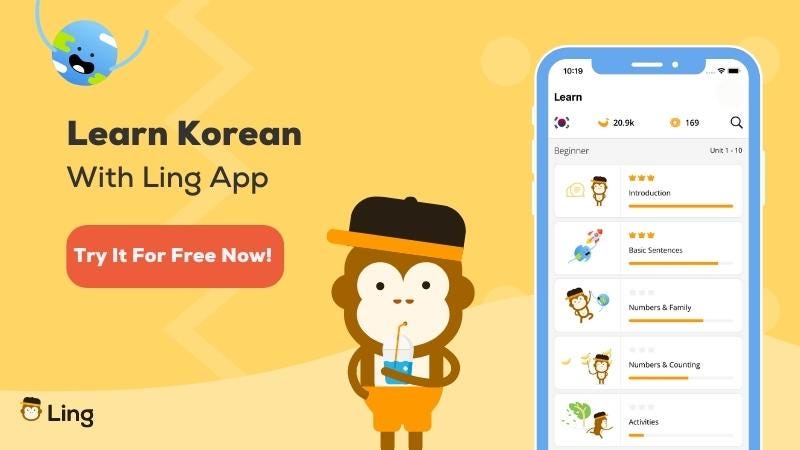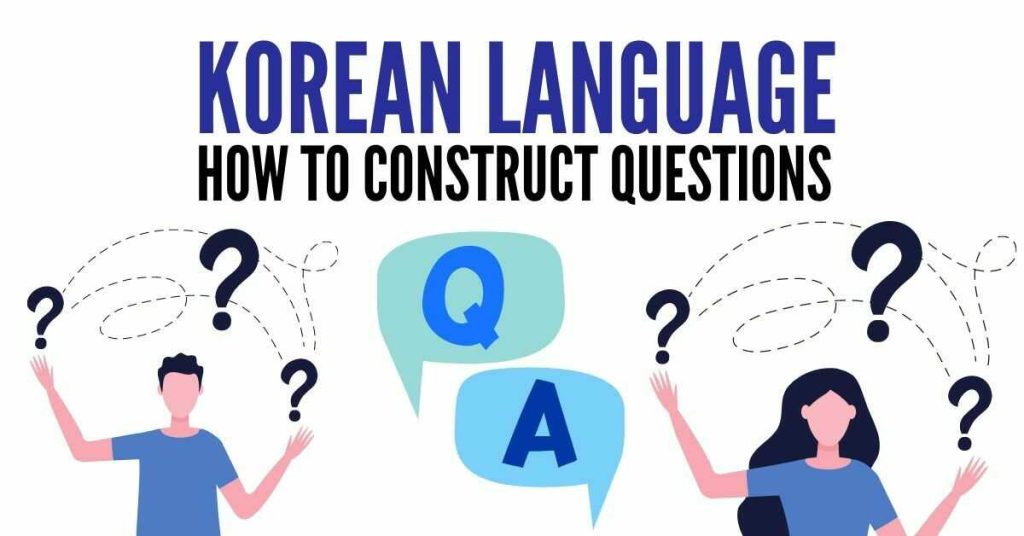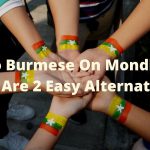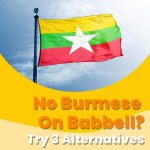Do you want to learn Korean? Are you interested in asking questions in Korean? Are you aware of all the Korean question words? If not, then don’t worry because, in this blog, we will walk you through all the ways that we can ask questions.
Here, you will learn Korean question words so that you can ask questions and hold a Korean conversation. So let the learning begin. 시작 (sijak!)
What Is The Korean Language?
The Korean language is the official language of South Korea and North Korea. The Korean language of South and North has minor differences which are sometimes extremely difficult for a non-native speaker. However, the native Korean speakers understand each other easily. If you are learning Korean in South Korea, then the accent and words of North Korean might not be understandable for you, but once you master this one, the other one will be easy for you as well.
Before Korean, Chinese was spoken widely in Korea, and the Korean language had to face some resistance. But eventually, the language succeeded, and the Korean people tend to speak Korean now. The elements of the Chinese language have not been eliminated completely, and there are many words in Korean that are either Chinese or derived from the Chinese language. An example of this is the Sino-Korean numbers.
Questions In Korean
There are two main ways to form questions generally. The first one is by asking questions that can have yes, no, I don’t know as answers. The second type is asking for something other than yes or no. Those questions use the question words and need specific answers.
The sentence order in a Korean question for a simple question has the same subject-object-verb order. SOV is the shortened form of that and can help you remember the sentence order. You can also add adjectives and other adverbs to make complex sentences.
Examples Of Questions In Korean
The questions like “Are you happy?”, “Do you like this?”, “Is this your bag?”, “Are you the author of this book?” are yes/no questions. All of these questions can easily be answered with a yes or no. You can say, “I am happy,” “I like this,” “This is my bag,” “I am the author of this book,” etc.

Yes And No Questions In Korean
For the first category, it is essential to have some vocabulary in Korean which can assist you in making Korean questions. Considering the English sentence structure, you might feel “Ugh! do I have to learn another sentence order now? I haven’t even gotten over the one which I learned yesterday.”
Well, guess what? You don’t have to. Korean simple questions (questions without question words) follow the same word order. YES! The exact same word order. Now, you might be wondering, if Korean has the same word order, then how would I know if someone is asking a question or telling me something?
But, while asking questions, you should give the impression to the listener that you want to know something. It should imply that you are trying to get some information. If your tone is monotone, then the person that you are asking a question might not be able to guess that. Putting emphasis and looking with inquisitive eyes can give the Korean speaker the idea that you are trying to know something.
Here is a table for you to learn some of these questions.
To answer these questions, you should know that adding yes to any answer and Just change the end of the sentence slightly.
In Korean, some possessive pronouns are used. If a person is asking a simple question with a possessive pronoun for “you” in it, you simply replace it with the possessive pronoun for “me” as a response. Possessive pronoun for me is 나의 (naui) and your is 당신의 (dangsin-ui). Here is a table of some common questions in Korean using possessive pronouns.

Question Words In Korean
There are different question words in the Korean language. But mainly, there are 5 common question words that form the basis of all the other question words. These are the words that are used the most to ask questions. Korean speakers commonly use these words either alone or in conjugation with the other words to form questions.
Five basic Korean question words are the 5 W’s (What, when, where, who, and why), which are 뭐 (mwo), 언제 (eonje), 어디 (eodi), 누구 (nugu), 왜 (wae). Another basic question word in Korean is how 어떻게 (eotteoke). Along with these, there are some more Korean question words that are used to make questions.
Look at this table to learn basic question words with their examples.
Answering The Questions In Korean
There are different ways to address these questions. The answers can be in the form of words, questions again, phrases, or sentences which is the same for the questions.
Examples Sentences In Korean
Here are some of the sample sentences to form replies for the question words in the Korean language.

Korean Fun Corner
How fun it is to learn the sentences using songs from K-pop. Most people (especially young people) are learning Korean because they are inspired by K-pop or K-dramas. In our blogs, we bring you a section that will have the Korean words and grammar rules using examples from K-pop and K-dramas, which will make learning fun and easy.
Here is a table for you with the questions in Korean songs having question words.
| English Translations | Questions In Korean From Songs | Song Name | Band/ Solo Artist |
| What even is in your heart? | 뭐야 네 맘은 도대체? mwoya ni mam-eun dodaeche? (Informal) | Why So Lonely | Wonder Girls |
| What do I mean to you? | 뭐야 내가 얼마나 널? mwoya naega eolmana neol? (Informal) | Why So Lonely | Wonder Girls |
| Why are you leaving the pretty me behind? | 왜 예쁜 날 두고 가시나? wae yeppeun nal dugo gasina? (Informal) | Gashina | Sunmi |
| What are you talking about? | 그 말하는 넌 뭔 수저길래? geu malhaneun neon mwon sujeogillae? (Informal) | Fire | BTS |
| No? What do you mean no? | 아니긴? 뭐가 아냐 난 눈 멀었어? anigin? mwoga anya nan nun meol-eoss-eo? (Informal) | Fake Love | BTS |
| What is love? | 사랑은 뭐가 사랑? salang-eun mwoga salang? (Informal) | Fake Love | BTS |
| What makes your happy? | 뭐가 널 행복하게 하는지? mwoga neol haengboghage haneunji? (Informal) | Boy with Luv | BTS |
| What is your name? | 너의 이름은 뭔지? neoui ileum-eun mwonji? (Informal) | The truth untold | BTS |
| How long do I have to wait? | 얼마나 기다려야? eolmana gidalyeoya? (Informal) | Spring Day | BTS |
| How much longing must fall like snow? | 그리움들이 얼마나 눈처럼 내려야 geuliumdeul-i eolmana nuncheoleom naelyeoya | Spring Day | BTS |
| How many more nights do I have to stay up? | 또 몇 밤을 더 새워야? tto myeoch bam-eul deo saewoya? | Spring Day | BTS |
| Why am I the only one to love? | 왜 혼자 사랑하고? wae honja salanghago? | I need you | BTS |
| Why do I keep needing you even though I know I’ll get hurt | 왜 다칠 걸 알면서 자꾸 네가 필요해? wae dachil geol almyeonseo jakku nega pil-yohae? | I need you | BTS |
| Why can’t I do what I want to? Why? | 왜 내 맘대로 할 수 있는? 왜? wae nae mamdaelo hal su issneun? wae? (Informal) | TT | Twice |
| That heavy breath, how can I measure it? | 그 무거운 숨을, 내가 어떻게, 헤아릴 수가 있을까요? geu mugeoun sum-eul naega eotteohge healil suga iss-eulkkayo? (Informal) | Breathe | Lee Hi |
| Why don’t I get tired of you? | 질리지도 않아 넌 왜? jillijido anh-a neon wae? (Informal) | Peach | IU |
| Now tell me why the love has changed | 이젠 내게 말해줘 왜 사랑들 달라지는지 ijen naege malhaejwo wae salangdeul dallajin-eunji (Informal) | Mama | Exo |
Language Tip For Learning Korean
Try making friends with native Korean speakers so that by having conversations with them, you can get to learn many new words and sentence compositions. This will increase your vocabulary, and you will not forget the words easily. You guys can have lessons together and enjoy learning.
You can teach your Korean friends how to speak English and help them with the English translation of many words and phrases in the Korean vocabulary list. Such friends can be a great resource for you. You both can learn a bit with each other, and it will keep you motivated.
Start Learning Korean With Ling

In this blog, you learned how to form a Korean question. In the same way, now you must also know how to answer a Korean question. Feel free to play around with words and make new sentences and questions to practice.
Having Korean as a new language can be difficult. Studying Korean without any lessons is perhaps impossible and definitely difficult. If you liked this blog, then feel free to check out other blogs of Ling App. You can sign up to get more information. We also have blogs about delicious Korean food and funny phrases in Korean for casual conversations.
What are you waiting for? Start speaking in Korean by downloading the Ling app on the Play Store or App Store now!



















